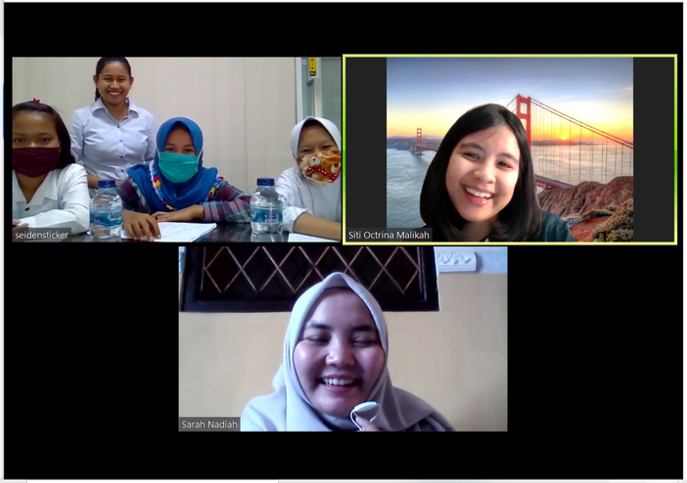

In 2019, The Centre for Child Rights and Business began implementing a youth development programme for a clothing brand with a supplier based in Indonesia. The aim of the programme was to empower young workers, who are aged above the local legal working age but below 18, with the necessary technical, professional and life skills to succeed as employees, and supporting them in their transition from youth to adults. While the original programme involved face-to-facing training sessions in the factory, this was no longer possible in the wake of COVID-19 due to travel restrictions. Committed to continue running the programme to support the young workers, The Centre adapted its approach and delivered the training remotely instead.
What was done?
In April 2020, in order to enable the client to continue supporting young workers in their supply chain in Indonesia, we delivered an young worker training session via two half-day live streaming sessions (four hours each) in their supplier factory, as travel restrictions meant that The Centre’s trainers could not go to the factory in person.
The factory was required to provide a good internet connection, laptop and projector, LCD screen and speaker, while The Centre did the rest. The training modules focused on career development and covered the following topics:
Self-assessment and development: During the training, the young workers were trained to: a) List their value and skill, b) Describe their personal weaknesses and strengths, c) Develop their long-term and short-term goals, d) Make a plan to reach their goals, and e) Know how to review progress
Interpersonal skills: the young workers were trained on: a) Active listening, b) Speaking effectively, c) Leadership, d) Teamwork, and e) Problem solving
How was the training received?
Despite not being accustomed to online training, both the factory management and the young workers found the training beneficial and quickly adapted to the new format. The topics covered in the training were new to the young workers, but all of them said the training was very useful. One worker said that the topic of self-assessment and development was particularly useful to her:
“I want to be a multi-skilled worker because I heard that to become a supervisor I need to know different kinds of work positions. I understand that I need to wait until I’m 18 years old before learning how to operate machines and handling sharp tools.”
Another young worker dreamed of becoming an administrative officer in the factory and aims to upgrade her education. She plans to join ‘Packet C’ (an exam equivalent to the national exam for senior high school students), and to do so she needs to save money and set aside time in the evening to prepare for the exam. The training helped her plan accordingly to achieve her goal.
All in all, the factory’s efforts to provide workers with a training room, good internet and access to the training made all the difference and allowed them to continue supporting their young workers. It was also a way for them to ensure that COVID-19 did not interrupt or end the learning path of these young workers.
2025/03/26
ETI Insights Webinar: Mined Minerals & Metals – Challenges & Opportunities in HRDD | April 3By using this website, you agree to our use of cookies. We use cookies to provide you with a great experience and to help our website run effectively.